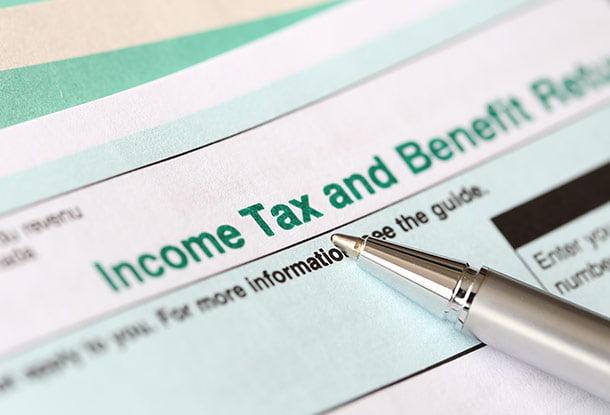For business owners, maintaining a positive standing in compliance with tax regulations is crucial for operational success. One way to confirm this compliance is through ATL, or the Active Taxpayer List. The ATL is a list of individuals and entities who are actively compliant with their tax obligations. Being on this list signals compliance and brings potential tax benefits.
What is ATL Status?
ATL status shows that your business is up-to-date with tax filing requirements, allowing you to benefit from certain tax incentives and deductions. This status is regularly updated and published by the relevant tax authorities.
Importance of Being on the ATL for Your Business
An active ATL status is more than just a sign of compliance; it boosts your credibility with clients, potential partners, and government organizations. Businesses with ATL status may have access to reduced withholding tax rates and the ability to bid on government contracts.
Benefits of Being on the Active Taxpayer List
Tax Advantages and Deductions
Companies on the ATL are eligible for tax breaks and deductions, which can lead to significant financial savings. These businesses may also qualify for reduced rates on certain taxes, fostering a more favorable business environment.
Increased Credibility and Business Opportunities
ATL compliance can signal to clients and partners that your business is trustworthy and fully compliant with tax regulations, often giving you a competitive edge. This status may also enhance opportunities for government and larger corporate contracts.
Access to Government Contracts and Projects
In many regions, government tenders and projects require businesses to be ATL compliant, as this reduces risks for the hiring entity. This requirement helps ensure transparency and reliability.
How to Determine If Your Business Is on the ATL
Using the Official Government Portal
The Federal Board of Revenue (FBR) provides an online tool to verify a business’s ATL status. This portal offers an up-to-date database that allows users to search for their business by entering the necessary information.
Verifying Status Through Third-Party Services
Several third-party services can also verify ATL status, but it’s generally advised to use the official government resources for the most accurate information.
Step-by-Step Guide to Check Your ATL Status
Follow these steps to verify your ATL status through the FBR portal.
Step 1: Gather Your Business Information
Before beginning, collect essential details, including your business registration information and tax identification number.
Required Documents and Details
Ensure you have the latest registration documents, and any relevant forms filed with the tax authority. These details are necessary for accurate verification.
Step 2: Access the FBR Portal
Go to the official website of the Federal Board of Revenue to begin the verification process.
Step 3: Navigating to the ATL Verification Section
Once on the FBR portal, locate the ATL verification section, often listed under “Taxpayer Services.”
Step 4: Enter Your Business Details
Input your business registration number or tax ID as prompted. Be careful to enter these details accurately to avoid errors.
Step 5: Interpreting the Results
If your business appears on the ATL, you’ll see a confirmation message. If not, you may need to check with FBR for the latest updates or possible errors.

Common Issues and Solutions When Checking ATL Status
Incorrect Details Entered
If the portal doesn’t recognize your information, double-check all details to ensure accuracy. Even a small mistake can lead to incorrect results.
Delays in Portal Updates
Sometimes, the FBR portal may take time to reflect recent filings. Contacting their support center can help clarify any delays in updates.
Contacting FBR for Assistance
If all else fails, reach out to the FBR helpline. They can assist with unresolved issues regarding ATL verification.
Consequences of Not Being on the ATL
Financial Penalties and Increased Taxes
Failure to be on the ATL can result in higher tax rates. Additionally, late filing or failure to file may lead to penalties or fines.
Limited Business Opportunities
Not being on the ATL may exclude your business from certain tenders, grants, and government contracts.
Impact on Vendor and Client Trust
Clients and vendors may prefer to work with businesses that are ATL compliant, as this is a sign of transparency and legal responsibility.
How to Get on the ATL if You Are Not Listed
Understanding Filing Deadlines and Requirements
Being on the ATL requires timely filing of tax returns. Be sure to understand the deadlines and requirements specific to your jurisdiction.
Steps for Registration and Filing
Filing taxes promptly and meeting all documentation standards is essential. Consult a tax professional if needed.
How Long It Takes to Get Added to the ATL
After successful filing, it may take several weeks for your status to reflect on the ATL. Keep a copy of your filing confirmation for reference.
Maintaining Your ATL Status
Filing Taxes on Time Each Year
Staying on the ATL requires annual filings. Missing a deadline can lead to removal.
Common Mistakes That Can Lead to Removal
Errors in documentation, missed deadlines, or underreported income are common reasons for ATL removal. Avoid these by staying organized.
Conclusion
Being on the ATL is essential for businesses seeking tax compliance and the advantages that come with it. This guide has outlined how to check your ATL status, address common issues, and maintain compliance. By following these steps, your business can enjoy the financial and reputational benefits of being ATL-listed.
FAQs
What is ATL status, and why is it important for my business?
ATL status indicates tax compliance, offering benefits such as reduced tax rates and increased credibility.
How often should I check my ATL status?
It’s recommended to check annually or whenever you file taxes, as it ensures continued compliance.
What should I do if my business is not on the ATL?
File any missed taxes, and verify that your details are accurate on the FBR portal.
Are there penalties for not being on the ATL?
Yes, businesses outside the ATL may face higher taxes and other penalties.Can I reapply if I am removed from the ATL?
Yes, but you must resolve any outstanding issues and reapply according to tax authority guidelines.





